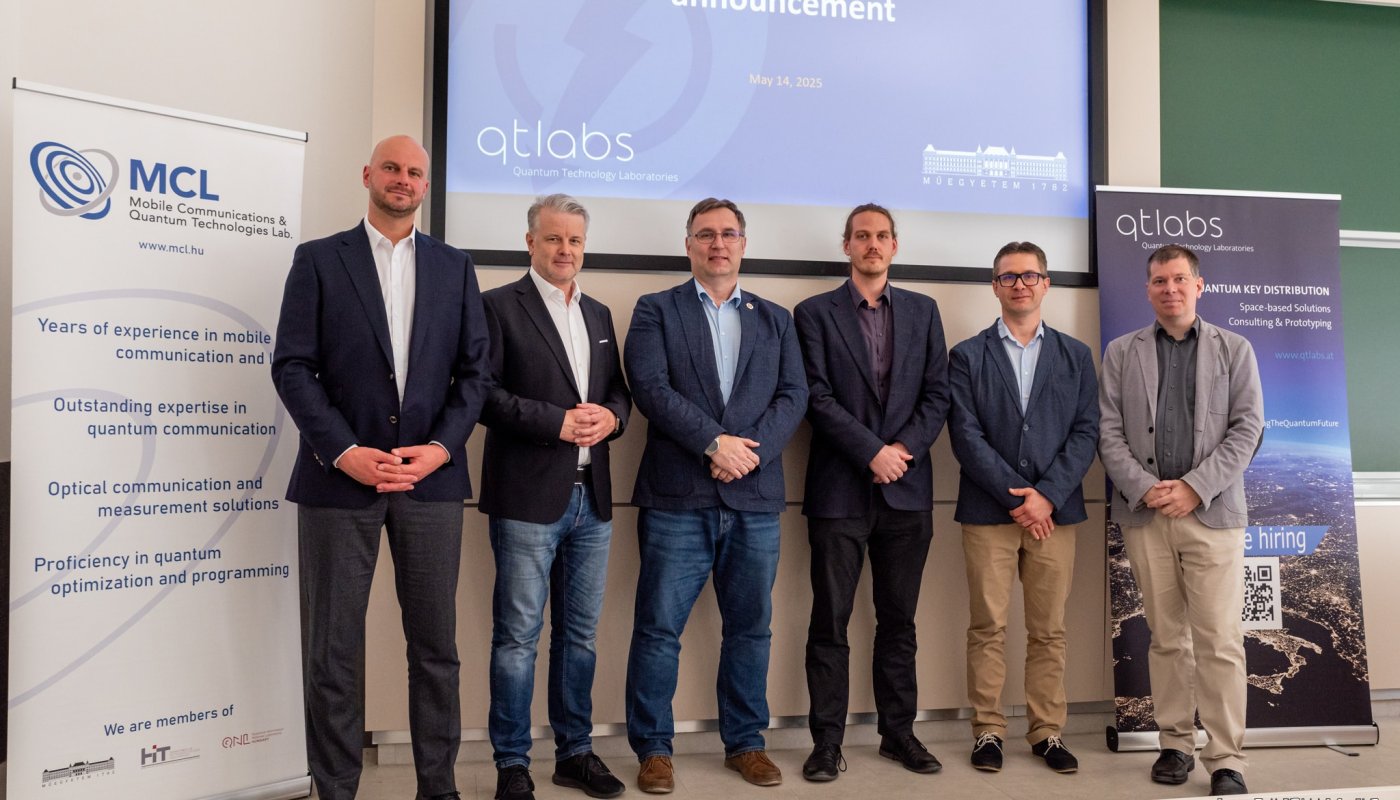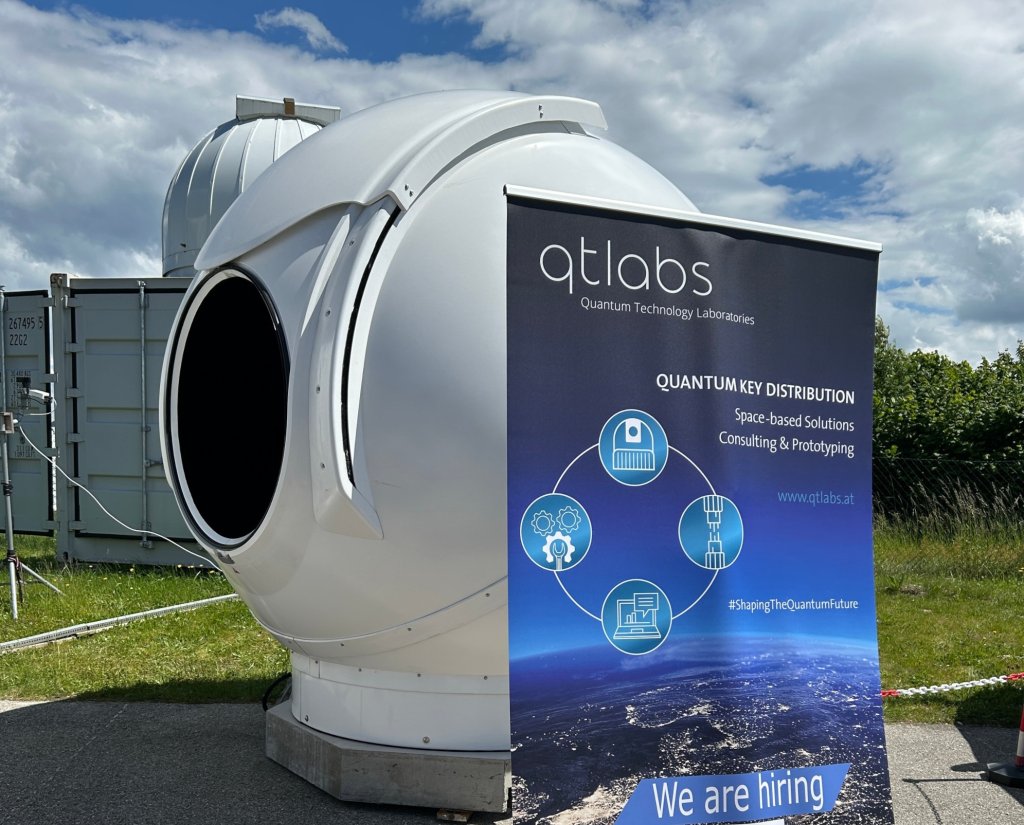News feed
One billion HUF investment in quantum communications at BME
2025. 05. 15.
The university is strengthening Hungary's role in the field of satellite-based quantum communications.
The Budapest University of Technology and Economics (BME) will procure a cutting-edge quantum-capable optical ground station from űAustrian technology firm Quantum Technology Laboratories GmbH (qtlabs), enabling the university to conduct real-time quantum key distribution (QKD) experiments with satellites and thus secure Hungary’s participation in the development of the next generation of cybersecurity technologies.
The investment paths the way for Hungary to connect to quantum communication satellites and
“reinforces BME’s commitment to advanced research and innovation, ensuring that the university and Hungary will be key players in cutting-edge technologies, including quantum technologies,”
said Gergely Zaránd, vice rector for science at BME.
This strategic development is part of the QCIHungary project, the national project contributing to the European Quantum Communication Infrastructure (EuroQCI) initiative. QCIHungary, a consortium of Pro-M Zrt., BME, ELTE, and HUN-REN Wigner Research Centre for Physics, aims to build a secure quantum communication backbone across Hungary.
| QKD is a next-generation technology that utilizes the laws of quantum physics to securely transmit cryptographic keys. Unlike traditional communication methods, it provides security based on fundamental laws of physics rather than the complexity of mathematical problems. It is seen as a critical tool in defending against future threats posed by quantum computers. |
BME’s new infrastructure will serve as a cornerstone for the Hungarian experimental and educational activities in space-based QKD, allowing for global QKD connection. “This investment is a milestone not only for our university but for Hungary’s role in the future of secure communications. We are proud to contribute to the European effort to establish a continent-wide quantum communication infrastructure, and
to equip our researchers and students with the tools to lead in this field,”
said Sándor Imre, Dean of the Faculty of Electrical Engineering and Informatics, at the press conference announcing the investment.
The new ground station will be housed at BME’s Mobile Communications and Quantum Technologies Laboratory working at the Department of Networked Systems and Services, which has over two decades of experience in quantum communication research. “In the past years, we have worked to bring quantum communication from theory to practice. With this new optical ground station, we are taking a significant step toward participating in real-world satellite-based QKD experiments and advancing protocols that are essential for the future quantum Internet,” said László Bacsárdi, Head of the Laboratory.

The ground station will be developed and supplied by Quantum Technology Laboratories, a European leader in quantum communication technologies. “We are proud to deliver an optical ground station to our partners in Budapest — an important step in strengthening secure communication infrastructure in Central Europe. This project is a great example of how advanced quantum technologies are now being implemented,” said Dr. Rupert Ursin, Founder & CEO of qtlabs.
The QCIHungary project has been co-funded by the European Union’s Digital Europe Programme and was supported by the Ministry of Public Administration and Regional Development.
Rector's Office, Communications Directorate
